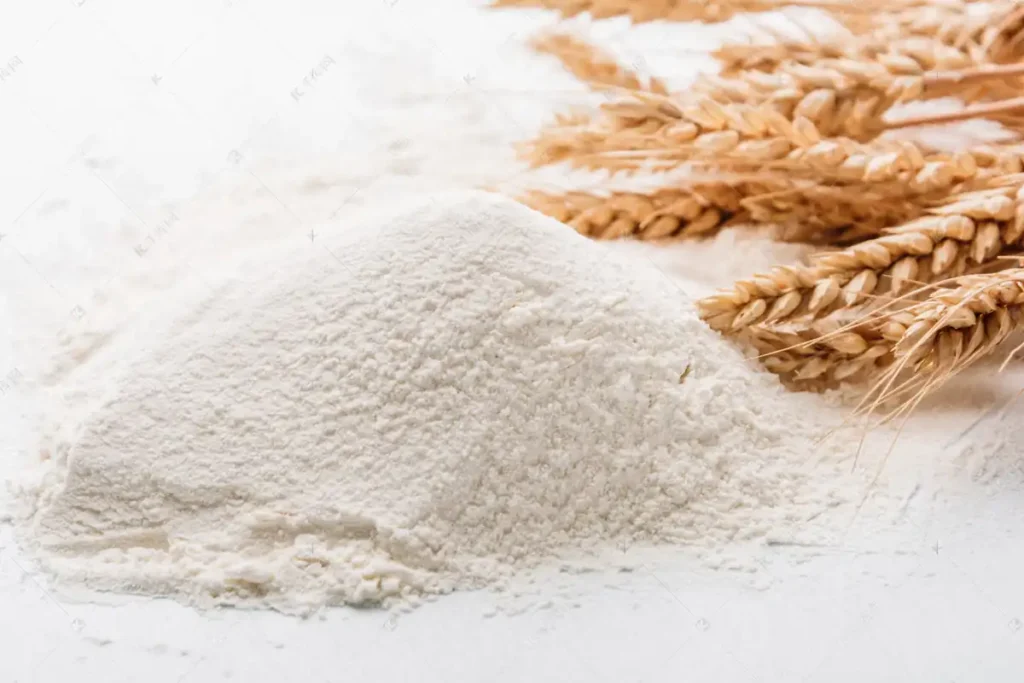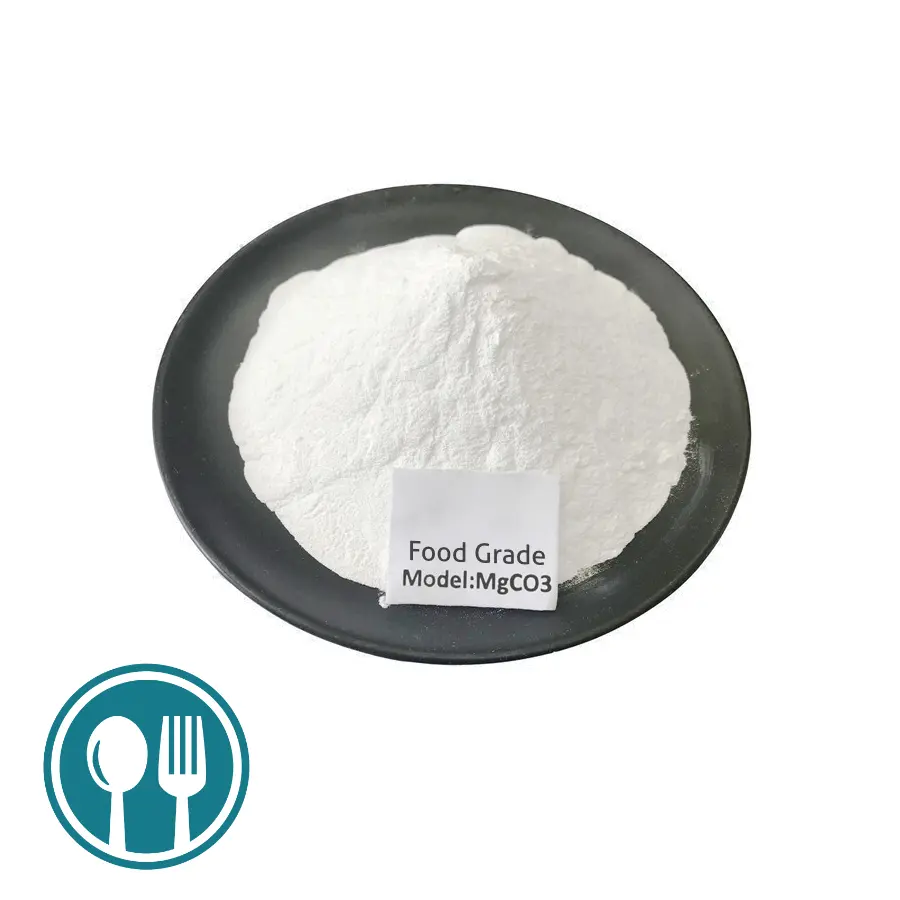At present, the domestic production of magnesium carbonate with brine brine soda ash method and ammonium carbonate brine method, did not see the production of food-grade magnesium carbonate basic reports. Using brine soda ash method production process is simple, small investment in equipment, high utilization of raw materials, eliminating the brine ammonium carbonate method of recycling ammonia equipment, to avoid the “three wastes” treatment of NaCI, NaSO4 can be directly back to the sunshine salt pond recycling. Soda ash method to obtain basic magnesium carbonate is mostly high temperature reaction. Hebei Messi Biology Co., Ltd. uses brine and soda ash as raw materials for the preparation of basic magnesium carbonate at room temperature.

The application of food grade magnesium carbonate in flour is mainly reflected in the following aspects:
Flour improver: food grade magnesium carbonate is an important raw material component in the formulation of flour improver, which can significantly improve the fluidity and dispersion of flour improver and act as anti-caking loosening agent. This helps to improve the quality and processability of flour, resulting in fluffier and more flavorful baked goods.
Nutritional supplement: Food grade magnesium carbonate is rich in trace elements, such as magnesium, iron, calcium, etc. It can be added to food as a nutritional fortifier to improve the nutritional value of food. This is of great significance to meet the demand of modern people for healthy diet.
Antifoam agent: In the production process of wheat flour and protein-based solid beverages, food-grade magnesium carbonate can be used as one of the components of the antifoam agent to help eliminate foam and improve the stability and quality of the product.

Advantages of magnesium carbonate application in flour and its effect on food quality:
As a flour improver, magnesium carbonate can significantly improve the elasticity and toughness of flour, making pasta more glutenous and elastic. In addition, the addition of magnesium carbonate can prolong the shelf life of pasta, keep the food in a moist state, and prevent the food from losing its original flavor and texture due to drying. These properties make magnesium carbonate play an important role in flour improvement.

